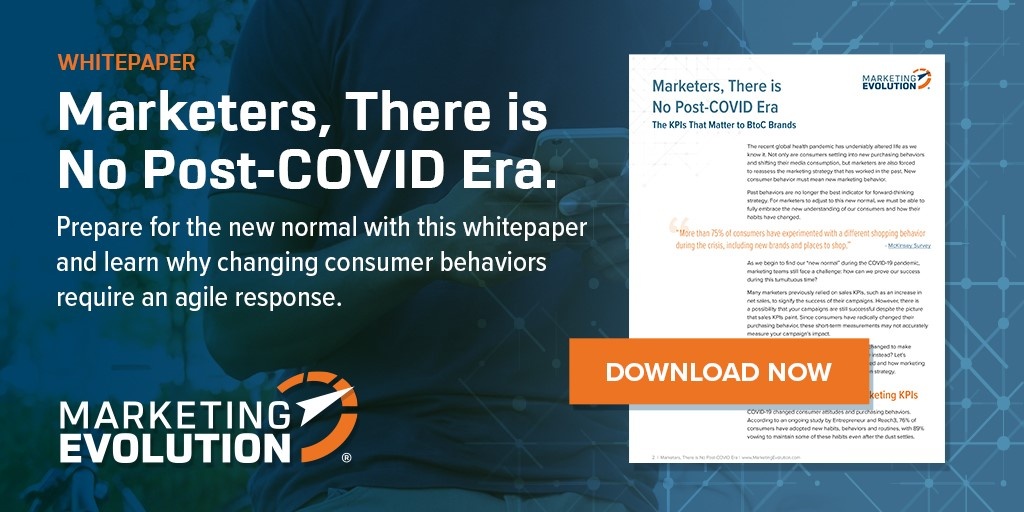The Top Martech Landscape Trends To Watch For in 2022
Learn how Regions Bank Perfected their customer journey
Marketing technology, also known as martech, describes software and tools that help marketing teams achieve their goals and objectives. The entire landscape of martech assists with a gamut of marketing activities, including marketing attribution, content management, customer relationship management, and more.
All this choice is undoubtedly a good thing for ambitious marketing teams. However, too much choice can be a bit daunting.
If you thought it was difficult to choose from the 6,000 TV shows and movies on Netflix, imagine the challenge of finding the best marketing tools from over 8,000 vendors – knowing that the wrong choice could compromise your team’s goals. To add to the complexity, there’s no single “best” tool for every marketer. Rather, you need to look at the market at large, find technological gaps in your current martech stack, and evaluate the martech landscape to choose solutions that will patch those gaps.
What is the Martech Landscape?
Martech describes the marriage of technology and marketing with the intention of satisfying marketing goals through useful tools. However, these tools are not one-size-fits-all - marketers need to select from a wider martech marketplace to satisfy their unique initiatives. When you look at the entirety of the marketplace, you’re examining the martech landscape.
With so many tools on the market, a little bit of knowledge can go a long way. Let’s closely examine three trends in the marketing landscape that should be accounted for when choosing marketing technology for 2021.
Trend 1: More Spending and More Tools
Marketing technology is already a sizable line item for most marketing teams, making up 26.2 percent of the average marketing budget according to Gartner. However, despite taking a significant portion of the budget, leaders are still insisting on expanding their martech stack. In fact, Gartner found that 68 percent of CMOs are planning to increase their technology spending throughout 2021.
The martech landscape is continuing to grow not only because there are new and exciting solutions on the market, but also because of disruptions caused by the COVID-19 pandemic. Marketers had to get a lot more strategic about their digital marketing spend and acquiring certain marketing technology tools was essential to attributing, analyzing, and executing on the new marketing environment. For most, additional investment in martech was an inevitability.
For this reason, marketers should prepare for their competitors to expand their martech stack – and consider expanding their own. Additionally, if you’re planning to acquire new marketing technology, keep in mind that it’s becoming increasingly important that you assess your current stack and estimate how difficult integration will be between an increasing number of interconnected, but separate, tools.
Trend 2: Data Access and Personalization in a Cookie-Less Future
As you’re reading this, there’s a lot of data floating around the internet that is ripe for the picking. Big data is the norm, and it seems like anywhere you look there are opportunities to collect or purchase data. However, some industry leaders suspect the winds of change are coming – and it’s not just about GDPR or CCPA. Today, these leaders are worried about the consequences of a cookie-less future.
Cookies have been one of the most common ways that marketers gain insights about marketing-related engagement since the very beginning of the internet. However, that era is coming to an end. Browsers like Safari and Firefox have already removed third-party cookie tracking, and Google Chrome has committed to phasing out third-party cookies by 2022. This gives marketers less than a year to reorient their data collection strategy and find tools to support that new strategy.
Keep on the lookout for a martech tool that can properly collect and attribute consumer data without cookies. Having a solution that can measure both aggregate and person-level data during this transitional time will give you the flexibility to make accurate and timely decisions using fewer cookies.
Trend 3: Accounting for Unusual Events
Nobody will soon forget how COVID-19 shook the entire globe throughout 2020 – and marketers especially felt the impact of the disruption that came with COVID-19. When consumers pivoted their lifestyles and buying habits almost overnight, most brands weren’t sure what their next step should be.
Right now, it seems that the crisis around COVID-19 is starting to simmer down. However, it’s only a matter of time until another controversy emerges. If your team is not searching for tools in the martech landscape that can help them prepare for unexpected events, your team may end up blindsided.
Of course, nobody has a functioning crystal ball for you to look through, but a marketing analytics platform that uses Bayesian learning and forgetting will get you close enough. If a disruption occurs among your customers, the Bayesian algorithm will recognize this, “forget” irrelevant information, reinforce data that’s still relevant, and continue to collect data that points to new trends and habits. This will give you a leg up over your competitors when a controversy or other unusual event occurs.
As stated before, COVID-19 transformed the way that martech trends were operated starting in 2020 and 2021. Currently, according to martech expert Scott Brinker, about 20% of martech solutions this year were not in existence last year.
Trend 4: Economic Uncertainty Causing A Decrease In Business Spending
For marketers and business owners, it can be unnerving to increase company spend while simultaneously having a decrease in demand for product or service. Digital marketing is now consumed at a higher rate than other forms of advertising, putting pressure on companies to increase their digital media budgets. Many companies and businesses have already shut down amidst the pandemic and an uncertain influx of company revenue is leaving many remaining businesses fearful to spend more.
Trend 5: Businesses Embracing Digital Advertising And Engagement
The need for in-person advertising has diminished over the past couple of years due to Covid-19. According to marketing news outlet, The Drum, 61% of marketers have altered their short term marketing strategy. A lot of this change in strategy involved moving more of the budget to digital marketing efforts. With businesses now embracing digital marketing, make sure to seize any opportunities in this new market.
Trend 6: Performance Marketing Is Valued In A Recession
Covid-19 has made businesses fear for their revenue, but performance marketing might offer a solution. In performance marketing, the company only pays for the ads that achieve a certain result (i.e. clicks or impressions). This type of marketing will allow for more efficient campaigns with less money wasted. Comparing this strategy to other types of marketing, performance marketing also has lower risk and a higher ROI than other types of marketing.
Final Thoughts
Marketers need to keep these trends in mind when they’re evaluating the martech landscape and their current martech stack for any potential gaps. It’s always better to take a proactive philosophy to developments in the world of marketing, instead of reacting to trends the moment they tangibly impact your business. A little bit of preparation goes a long way when it comes to activities like selecting the ideal vendor for your needs, building stores of high-quality data, and ensuring your platform will be properly integrated.
If you’re ready to act now, we recommend taking advantage of our new Marketing Evolution Pilot Program. We’ll let you take a firsthand look into our privacy-preserving solution, which will help you capitalize on the most important trends in marketing through retrospective performance reporting, forward-looking optimization, and closed-loop activation.
Taking the time to conduct research into tools like this will prepare your brand for success in 2021 and beyond.





















